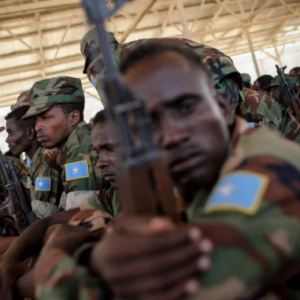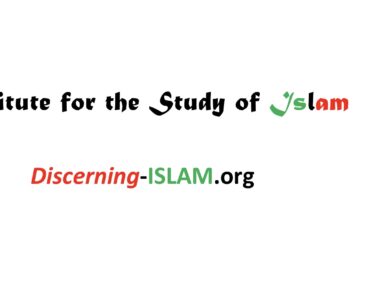
Somali Civil War

Somalia, Horn of Africa
The Somali conflict is a multifaceted dispute triggered by the fall of President Said Barre regime on 27 January 1991. General Barre’s dictatorship was synonymous with extreme brutality, suppression of opposition groups, both nationalistic and Islamic, and exacerbation of interclan rivalries (clannism). By 1988, the dissatisfaction with the government led to nationalist groups throughout the country, with Northern Somalia (modern-day Somaliland) leading the charge, to attack government and military posts, prompting the First Somali Civil war (1988-1991).
The fall of Said Barre’s regime and the Somali Civil War created a power vacuum in which nationalist and Islamic groups, warlords, clan and sub-clan militias and other actors aimed to carve out swathes of territory for their own governance. Subsequently, regional and international institutions initiated various peace and reconciliation processes in an attempt to create a stable and robust federal government, with various degrees of success. The inter clan rivalries have fuelled the tension between the Federal government and the regional states, making the consensus and state-building, as well as peacebuilding, process strenuous. The chaos resulted in the declaration of independence by Somaliland in 1991, though still not recognised by any nation in the world, and Somalia maintains its authority over the northern territory. In 1998, the Puntland region in Northern Somalia declared partial autonomy, meaning that they reserve the right to operate independently but still can be part of the Federal Government of Somalia. Conflict as a result of both internal and external factors has resulted in more than a million deaths, with many more fleeing to neighbouring countries.
In the early 2000s, there were renewed efforts to rebuild the Somali central government, which involved a dual state-building and peacebuilding process. The renewed efforts, spearheaded by the regional institution Intergovernmental Authority in Development (IGAD), led to the signing of the Arta Declaration in 2000 which addressed representation in government, a significant obstacle to the Somali peace process. The declaration asserted that all future Somali governments would use the 4:5 formula which states that the four main clans – Dorad, Hawiye, Dir (includes the Isaaq) and Rahanweym (Digil-Mirifle) will have equal representation in government while the other smaller clans will share the rest of the representation. Though Somali politicians, with the support of the regional institutions, attempted to address clan grievances, the transitional governments – the Transitional National Government and Assembly (TNG/A) (2000-2004) and Transitional Federal Government/Parliament (TFG/P) (2004-2012) – were plagued with inefficiency, infighting and corruption. Additionally, the insecurity in the country forced the President, Cabinet and the majority of the Members of Parliament to operate from Kenya, which contributed to their inability to govern.
Despite the challenges brought upon by Al-Shabaab, an insurgent group terrorising the country since 2007, the TFG/P managed to create a new constitution which effectively led to the first election since 1969. On 20 August 2012, the Federal Government of Somalia (FGS) was born under the leadership of Hassan Sheikh Mohamed (2012 -2016). Similar to the transitional governments, the FGS aimed to stabilise the country through building a national consensus between the government and the newly defined regional states – Jubaland, Puntland, HirShabelle, South West, Galmudug and Somaliland. Each regional state, which is representative of the traditional clan and sub-clan territorial boundaries, was tasked with creating spaces where clan rivalries and grievances could be addressed.
Since the creation of the Federal Government of Somalia (FGS) in 2012, each federal government has focused on creating a cohesive and inclusive political space that takes into account clan politics and alliances, as well as the threat of Al-Shabaab. One of the biggest obstacles inhibiting Somalia from moving forward cohesively is the role of clan interest, i.e. clannism, in politics. The majority of the people in power propel the interests of the clan and sub-clan rather than the interest of a united Somalia. As a result, politicians are always sceptical of the intentions of others, and therefore, unable to make significant changes. The inability for the FGS and the regional governments to work towards the common goal of creating a prosperous Somalia, fuelled by lack of trust and clan politics, is another major obstacle. Finally, the failure to put clan politics aside for the betterment of the country has slowed down security sector reform which calls for the integration of clan and sub-clan militia into the armed forces.
As to date, the FGS must find a way to balance the interest of the state and the sub-clans while tackling the threat of Al-Shabaab, and to a lesser extent, the Islamic State in Somalia (ISS). Refer to the Al-Shabaab and ISS pages to understand the security angle of the Somali conflict.

“The people of Somalia just do not have a voice. They are to me the most forgotten people in the world.”K’naan – Singer/songwriter/poet
Key Facts
Population – 12.3 Million
Deaths – 1 Million
Ongoing Since – 2007
Where: Somalia, Horn of Africa
Dates of conflict: 1988-1991, 1991 – 2000, 2007 – present
Refugees/Internally Displaced Peoples (IDPs) – 1.1 million
The Situation
Classification: Civil war, Clannism, Humanitarian Crisis, Federalism vs. Centralised type of government
Current situation: Prime Minister Hussein Roble has been meeting with the regional presidents, international partners and security forces to implement the historic 27 May electoral agreement. He is expected to make progress in time for the next election benchmark, the election of the Upper House of Parliament scheduled for 23 July. So far, he, and his dispute resolution committee, travelled to Gedo region, Jubaland state to find a solution to the disagreement between the pro-President Farmaajo administration in Gedo and the Jubaland Administration. The PM is also meeting with the MPs from Somaliland after the committee in charge of overseeing the election for its MPs in Mogadishu split into two camps – pro-Speaker of the Upper House and Pro-Deputy Prime Minister. Finally, Prime Minister Roble has met with the committee composed of police, military and AMISOM officials tasked with securing election polling stations, which are expected to be targeted by al-Shabaab.
Somali Civil War: A Timeline Of Atrocities
Section 1400: Terrorism Links: Groups & Individuals
Somali Civil War
Last Update: 09/2024
See COPYRIGHT information below.



